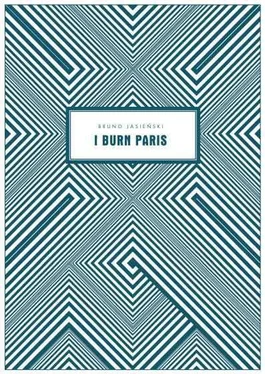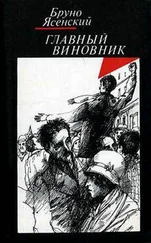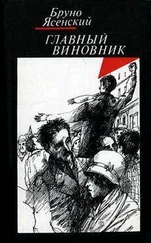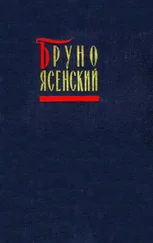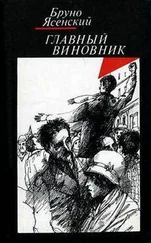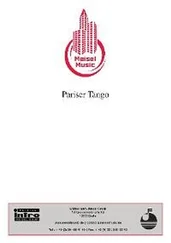Бруно Ясенский - I Burn Paris
Здесь есть возможность читать онлайн «Бруно Ясенский - I Burn Paris» весь текст электронной книги совершенно бесплатно (целиком полную версию без сокращений). В некоторых случаях можно слушать аудио, скачать через торрент в формате fb2 и присутствует краткое содержание. Город: Prague, Год выпуска: 2012, ISBN: 2012, Издательство: Twisted Spoon Press, Жанр: Классическая проза, на английском языке. Описание произведения, (предисловие) а так же отзывы посетителей доступны на портале библиотеки ЛибКат.
- Название:I Burn Paris
- Автор:
- Издательство:Twisted Spoon Press
- Жанр:
- Год:2012
- Город:Prague
- ISBN:978-80-86264-37-0
- Рейтинг книги:5 / 5. Голосов: 1
-
Избранное:Добавить в избранное
- Отзывы:
-
Ваша оценка:
- 100
- 1
- 2
- 3
- 4
- 5
I Burn Paris: краткое содержание, описание и аннотация
Предлагаем к чтению аннотацию, описание, краткое содержание или предисловие (зависит от того, что написал сам автор книги «I Burn Paris»). Если вы не нашли необходимую информацию о книге — напишите в комментариях, мы постараемся отыскать её.
I Burn Paris — читать онлайн бесплатно полную книгу (весь текст) целиком
Ниже представлен текст книги, разбитый по страницам. Система сохранения места последней прочитанной страницы, позволяет с удобством читать онлайн бесплатно книгу «I Burn Paris», без необходимости каждый раз заново искать на чём Вы остановились. Поставьте закладку, и сможете в любой момент перейти на страницу, на которой закончили чтение.
Интервал:
Закладка:
One day, unexpectedly, as if one of the gears of the well-oiled machine had suddenly ground down, Pierre’s lonely cell was crammed with a ruckus of people, their heads gashed and dried blood on their bandages and the collars of their blue shirts. There was the powerful odor of male sweat, gunpowder, and the acrid, indelible soot of factories. Heavy words fell everywhere, chipped like paving stones: revolution, proletariat, capitalism.
From the fragments of sentences, stories, and cries unraveled a solid four-day epic, written in blood on the asphalt, by the glare of electric lamps.
The table of contents was always, irrevocably, the same:
Unemployment. Pay cuts. Gloomy rallies. From the rally: a march through the city, with The Internationale .
They were harassed by the police. Cornered in side alleys. Beaten with rubber truncheons until they bled. The trampled pavement spat a hail of stones in reply.
The enraged soldiers charged. A single salvo paved the street anew. In response: the stony jaws of the street bared the teeth of its barricades.
A massacre. Sticky, dun blood on the sidewalks. Trucks loaded with people. The crowd, some tens of thousands, like a number crossed off a balance sheet, was hauled off to the margins behind gray and impenetrable prison walls.
Incredible numbers were cited. The prisons couldn’t hold this oversized haul. Fifteen thousand people were apparently packed into La Santé Prison. Fresnes Prison was said to have even more. The army surrounded the prison buildings. Rows of fifteen slept side by side on the floors of cells intended for a single man. Strolls were held at various times of the day, in shifts, to avoid commotion.
The flawless mechanism of this underground world began helplessly spinning its gears like an overwound watch. The hands still traveled their familiar paths, but the loose cogs spun, dragging a muddled chaos of screws and springs behind them.
The prison telegraph tapped from cell to cell, day and night, with its one thousand tireless woodpeckers.
Those placed in the cells for general offenders demanded they be moved to the ward for political prisoners. The prison council denied the request. The prisoners replied with a hunger strike.
Huddled in his corner, wary as a dog, lapping up his portion of soup and greedily swallowing his bread, Pierre felt fifteen pairs of sober, steely eyes – enlarged by the atropine of hunger – and under their gaze the tasty morsel of prison bread lodged in his throat, rising on the yeast of his saliva and turning into a hunk too large to swallow. The thick soup grew cold in its mess tin, coating over with a map-like skin.
At night, long discussions reached him from afar, as if through a glass wall. The words, chiseled like blocks, piled one on top of another, and soon a spired building shot up into the sky. If they could have gone outside and rolled up their sleeves, they would have built it from real stone, and just as spacious and proud.
Like a shoddy machine, the world destroys more than it produces. This cannot go on. You have to strip everything down to the screws, throw away whatever’s useless, and after taking it apart, build it all over again, once and for all! The plans are ready, the builders’ fingers are itching, but the old, corroded scrap iron won’t give way. It has taken root, a coat of rust has formed in its seams, they’d have to yank out every screw with their teeth.
And in the black, smoky box of the cell, the myth of a new, reconstructed world unspooled like the reel of a hallucinogenic film.
Back in the factory Pierre had heard long and monotonous stories about this new world, a world with neither rich nor oppressed, where the factories would be owned by the workers, and labor would change from a form of slavery to a hymn, to hygiene for the liberated body. He didn’t believe them. No one would budge the diabolical machine, not one inch! It had grown deep into the Earth. It had been running since time immemorial, ever since it had been set in motion. Seize the cogs with your bare hands? It wouldn’t stop, it would just rip off your hands. He saw blood on soiled bandages, hands bound in bloody rags, and he thought: another exercise in futility. The battered bodies were flung off the transmission belt and onto the sidelines, behind the wall, with a flick of the wrist.
Sometimes at night, a white-hot word of hatred would fly out from the huddled group, fall like a spark upon the soft sawdust of his dreams and then blaze up with a red flame: Go! Stand arm in arm with them! Storm! Smash! Take revenge!
Then Pierre awoke with a sudden jolt and sat up on his cot.
But the cool, glassy words of the people in the blue shirts piled symmetrically like bricks, and there was no anger in their words, there was no thick, destructive hatred, only the strong will to build – the pickaxe and the trowel.
No, these people don’t know how to hate! They have heaps of plans for replacing one machine with another. Replace this one with that, and again they spin circles, cogs mesh with cogs, they pull, drag, carry the defenseless human splinters and again they’ll bloody their hands on the black spokes of the wheels, these terror-crazed Pierres, incapable of stopping the wheels, or stalling them for even a second.
Pierre’s outstretched hand convulsed, retracted into the depths, his head rose from its pillow, slowly settled back onto his shoulder, then moments later fell onto the mattress, and there he lay pressed into the flattened straw – a man no more, just a tortoise in an impenetrable shell of solitude.
VI
One morning, when the verdant rags of foliage hanging from the heated wires of the branches released an acrid, burning fragrance, the enchanted gate suddenly opened before Pierre’s astonished eyes, and he was violently shoved outside.
He stood there for a long moment, staggered by this improbable event, hardly knowing how to start, where to go, lost once more in this strange and incomprehensible world, where there were no comfortable cots, and to get a mess tin of soup you had to drag heavy loads of damp carrots through the long, sleepless night.
His first, instinctive reflex was to go back through the gigantic closed gate, but it refused to suck him back in. In this world of hostile and inaccessible things, entrance to the World of Readymade Things was possible only by extraordinary effort.
But then his disoriented thoughts, running down the twisting and comfortless alleys of this world, suddenly snagged on an old wound, and Pierre decided to go in search of Jeannette.
It was the first time in months (years?) that he had set off walking in a straight line. He walked for a long time down paths of alleys intersecting at every possible angle, which some mysterious giants had strewn with the enormous gravel of cobblestones. Everything here was different. People jostled each other as they ran, unchoreographed and haphazard, free, it seemed, of any mutual regulations, as if circulating in a chimerical world of absolute liberty. Navy-blue police officers rose here and there at the boulevard intersections like majestic statues; with one flick of their miracle-working fingers the flood of vehicles stopped and then were set in motion, indicating that another mechanism was at work, one too complex and intangible to fathom.
When Pierre found himself at Place Vendôme, the clock was striking twelve, and through the half-open sluice gates of the warehouses a clamorous wave of midinettes came bubbling onto the street. Pierre desperately strained his eyes to find Jeannette amidst the crowd. The stragglers slowly began dispersing.
The warehouse was as stark as an orangery. He was told that Jeannette hadn’t been to work for some time.
Читать дальшеИнтервал:
Закладка:
Похожие книги на «I Burn Paris»
Представляем Вашему вниманию похожие книги на «I Burn Paris» списком для выбора. Мы отобрали схожую по названию и смыслу литературу в надежде предоставить читателям больше вариантов отыскать новые, интересные, ещё непрочитанные произведения.
Обсуждение, отзывы о книге «I Burn Paris» и просто собственные мнения читателей. Оставьте ваши комментарии, напишите, что Вы думаете о произведении, его смысле или главных героях. Укажите что конкретно понравилось, а что нет, и почему Вы так считаете.
